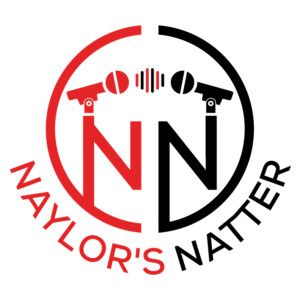

Naylor's Natter Podcast- an education podcast .
https://anchor.fm:443/s/85b24b4/podcast/rssEpisode List

Equity in education: Levelling the playing field of learning with Lee Elliot Major
quity in Education sets out a new equity-based approach in education to help teachers improve the prospects of under-resourced and working-class pupils.The equity approach recognises that we must address our own cultural biases and barriers within the classroom, while helping to remove extra barriers to learning experienced by children outside schools. Based on thousands of research studies and years of working with expert teachers, the book sets out the principles and practical strategies for trainee teachers, teachers and teacher leaders.Adopting an equity mindset involves four key principles:· equity not equality - doing more to overcome the extra barriers some learners experience· capacity not deficit thinking - recognising the talents in all pupils· deep not shallow relationships - developing authentic individual relationships with pupils· multiple not singular talents - acknowledging that human talents come in many forms.Equity in Education also advocates the national policies that would enable teachers to prioritise an equitable approach and reduce divides between the education haves and have-nots.

What Do New Teachers Need to Know?: A conversation with Peter Foster
Apologies for the Microphone issues here! I made a mistake and selected the wrong microphone . Hopefully Pete's quality shines through. What knowledge will make you most effective as a teacher? New teachers are often bombarded with information about the concepts they should understand and the topics they should master. This indispensable bookwill help you navigate the research on curriculum, cognitive science, student data and more, providing clarity and key takeaways for those looking to grow their teaching expertise. What Do New Teachers Need to Know? explores the fundamentals of teacher expertise and draws upon contemporary research to offer the knowledge that will be most useful, the methods to retain that knowledge, and the ways expert teachers use it to solve problems. Written by an educator with extensive experience and understanding, each chapter answers a key question about teacher knowledge, including: • Does anyone agree on what makes great teaching? • How should I use evidence in my planning? • Why isn’t subject knowledge enough? • What should I know about my students? • How do experts make and break habits? • How can teachers think creatively whilst automating good habits? • What do we need to know about the curriculum? • How should Cognitive Load Theory affect our pedagogical decisions? Packed with case studies and interviews with new and training teachers alongside key takeaways for the classroom, this book is essential reading for early career teachers, those undertaking initial teacher training and current teachers looking to develop their expertise.

Time to Think with Rachel Johnson
Being a leader is a wonderful privilege but can also come with challenges we don't always feel prepared for. How often do we tie ourselves in knots wondering about the right way to deal with a difficult situation at work? Or wondering why no one ever told us how to manage some of the challenges? This book is for people who need practical ways of tackling the tricky issues in leadership to move forward courageously. From people pleasing to crucial conversations, we look at ten areas that can cause us to be 'stuck' and how we can get ourselves free. Dip into this book when you need some support to inspire, motivate, and equip you in whatever stage of leadership you're at so that you can lead more confidently and freely, and be your best more of the time.

The Power of Teams with Sam Crome
In education, resources and time are scarce, yet the demand for performance is sky high. School leaders invest money and labour into improving their schools, navigating trade offs along the way. But what if one of the biggest improvements we could make to our schools was something we already do? What if enhancing teamwork so that school teams thrive, was actually the secret ingredient to success?The Power of Teams explores evidence from across sectors, including education, to find out what high-performing teams share, and how we can adapt the most effective teamwork strategies to the unique environment of a school. The book outlines a model of teamwork factors that contribute to truly thriving teams, with theory, research, tangible actions for school teams, and a range of expert voices who contribute their experience in case studies.Effective teamwork leads to purpose, belonging, trust, learning, and, ultimately, high performance. When we better understand the nuances of how teams can thrive, we discover the real Power of Teams.

Building Culture with Lekha Sharma
Building Culture navigates the complex educational landscape and provides a look at school culture, highlighting key aspects of cultivating culture that leads to great pupil outcomes.Rooted in her own experience as a senior leader, Lekha Sharma knows that leaders need not only the what of curriculum, assessment and pedagogy but also the how. How can school leaders bring together the theoretical knowledge they possess and mobilise it on the ground so that they can have a positive and tangible impact on pupil outcomes? Teachers are increasingly equipped with the awareness and knowledge of cognitive psychology but what other areas of psychology could support those that lead those very teachers? And what elements of human nature can we harness to build the kind of school cultures that are conducive to improving outcomes for pupils? Building Culture provides a great start to answering all those questions.
Create Your Podcast In Minutes
- Full-featured podcast site
- Unlimited storage and bandwidth
- Comprehensive podcast stats
- Distribute to Apple Podcasts, Spotify, and more
- Make money with your podcast












